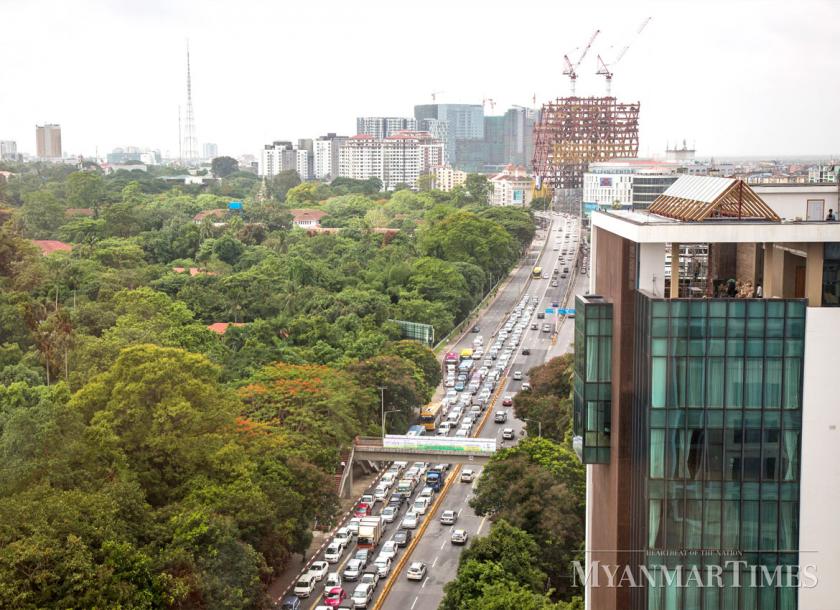Myanmar: Tax amnesty proposed, prompting renewed debate
The chorus of voices defending and opposing the reduction of tax rates for undisclosed income has come to the fore again following the submission of the Union Tax Bill 2019 to the Pyidaungsu Hluttaw earlier this month.
The proposed tax reduction rate, or tax amnesty, could see tax rates revised to 3 percent for income up to K10 million, 5pc from K10 million to K30 million, 10pc from K30 million to K3 billion and 30pc for K3 billion and above.
In comparison, section 25 of the current bill taxes undisclosed income of up to K100 million at 3pc, 5pc for K100 million to K300 million, 10pc for K300 million to K3 billion and 30pc for income above K3 billion.
For those who declare full income, the tax rates have not changed at 5pc tax from K2 million to K5 million, with progressively higher rates as incomes get higher but capped at 25pc for those getting above K30 million.
Ministry of Planning and Finance deputy minister U Maung Maung Win, who submitted the bill, told Parliament that the rationale behind the proposed amnesty was to free up capital for investment and for money to flow back into the system, generating private sector consumption.
He noted that there were tax rate reductions from 2007 to 2012 and again in 2015 to help stimulate the economy. “These reductions were made after taking into consideration the government’s fiscal stance and needs of the economy,” U Maung Maung Win said.
Yet, this isn’t the first time the government is proposing tax amnesty. In fact, lobbying for amnesty has been going on for quite some time, with a top business tycoon first proposing it as far back as August 2017 in a meeting with State Counsellor Daw Aung San Suu Kyi.
Last year, a similar proposal for citizens with undisclosed sources of income on which tax was previously unpaid or underpaid to be subject to lower tax rates was rejected by Parliament.
According to the Joint Bill Committee as reported by Myanmar Times at the time, the amnesty was omitted due to issues relating to fairness. If approved, the tax amnesty would essentially allow those who avoided paying tax in the past to pay lower taxes compared to those who had abided by the law. It would also permit them to escape punishment for tax evasion.
This year, the same objections on fairness from ordinary wage earners who feel that the burden of paying taxes should be spread evenly have come up again.
Ko Kyaw Zin Tun, a private sector professional, who is taxed at a rate of 25pc, questioned why ordinary wage earners have to shoulder the burden of paying a higher tax rate for disclosed income while those with unassessed or undisclosed income can pay as low as 3pc.
“Everybody needs to pay tax to support the country’s development and lowering it for those who don’t disclose their income is not fair,” he said.
But U Thein Han, vice chair of the Union of Myanmar Chambers of Commerce and Industry, supported the move to reduce tax on undisclosed income, saying that high taxes were weighing on economic growth.
“It’s all related, we need cash flow through the economy to generate growth so we believe that it’s a great move and we welcome it,” he said, adding that business sustainability remains an important factor when discussing the tax rate.
U Thein Han noted though, that the move should not burden low-wage earners or the lower ranks of the civil service, given that the minimum wage in Myanmar is one of the lowest in the region at US$4.80 a day.
U Maung Wate, a local entrepreneur, said the government should reduce the tax on undisclosed income to 5pc for at last one to two years. He called on Parliament to discuss the proposed reduction by considering such a move from all aspects to ensure that the tax rates will be fair to all and support economic growth.
U Zaw Win, a lawmaker and member of the Pyidaungsu Hluttaw Joint Bill Committee, said the government needed to incentivise people to pay their taxes as the current tax structure has not been effective with many still evading paying taxes.
Entrepreneur Dr Soe Tun chose the middle ground in the debate, saying that income tax “is unfamiliar to most and many begrudge the payment of taxes”.
He noted that people do not like the disparity of tax between disclosed and undisclosed incomes. “It’s difficult to see what is right or wrong but perhaps the construction industry should get some sort of tax relief to support the property market. There is also a need to look at how the government can stimulate the economy,” he added.
According to the Auditor General’s report, tax revenue was 8.2pc of GDP in 2017-18 compared to 8.9pc in 2016-17 fiscal year.
The Pyidaungsu Hluttaw Joint Bill Committee has met with business executives to find out their views ahead of September 22, when a final decision will be made. If approved, implementation will start in the new fiscal year beginning October 1. – Translated
Source: https://www.mmtimes.com/news/tax-amnesty-proposed-prompting-renewed-debate.html


 Thailand
Thailand




